Global Perspectives and Project Work Global

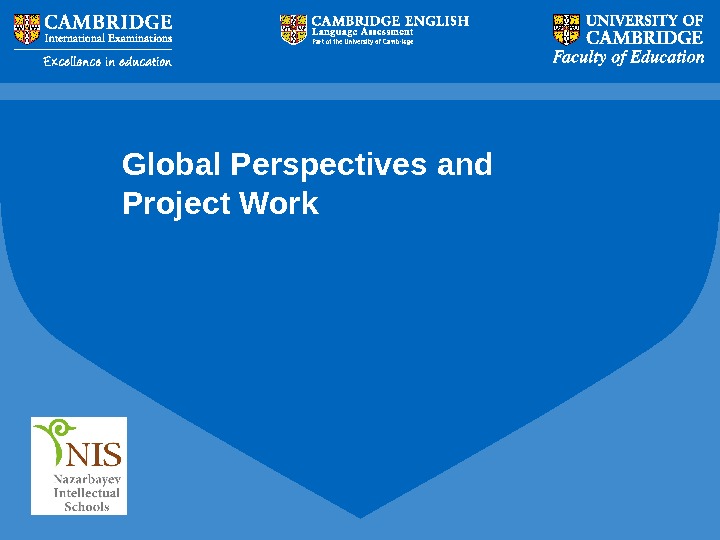
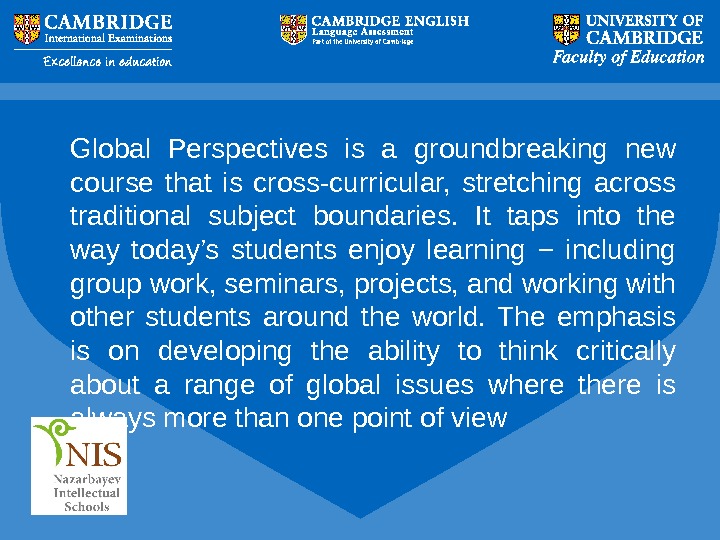
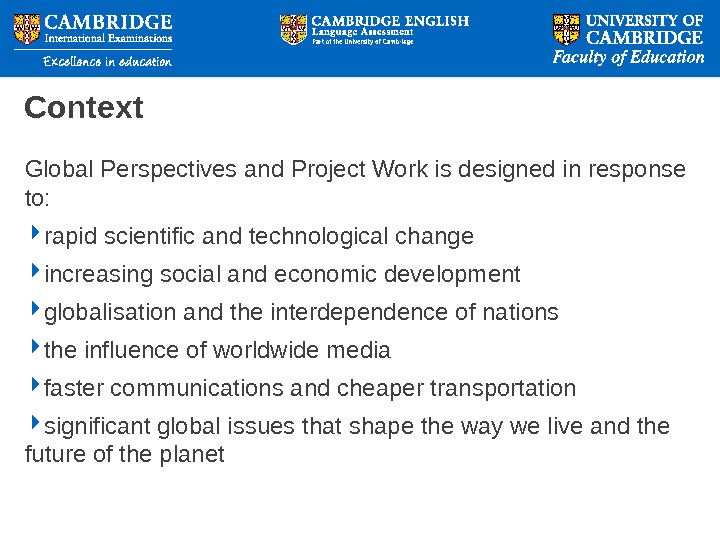
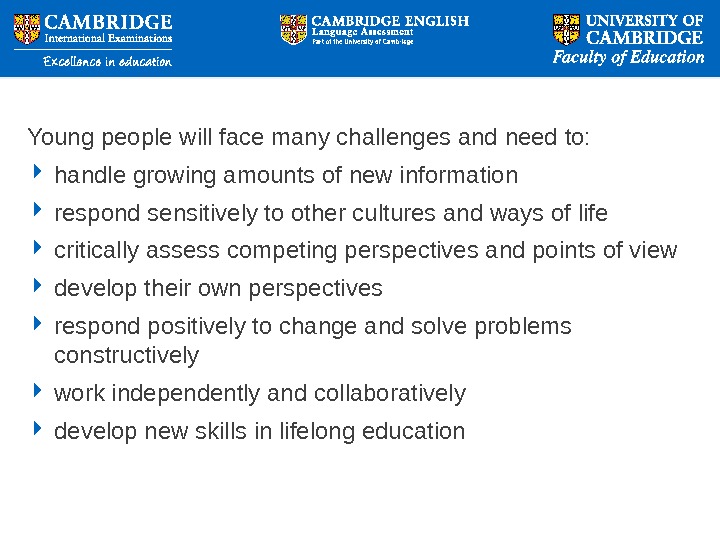
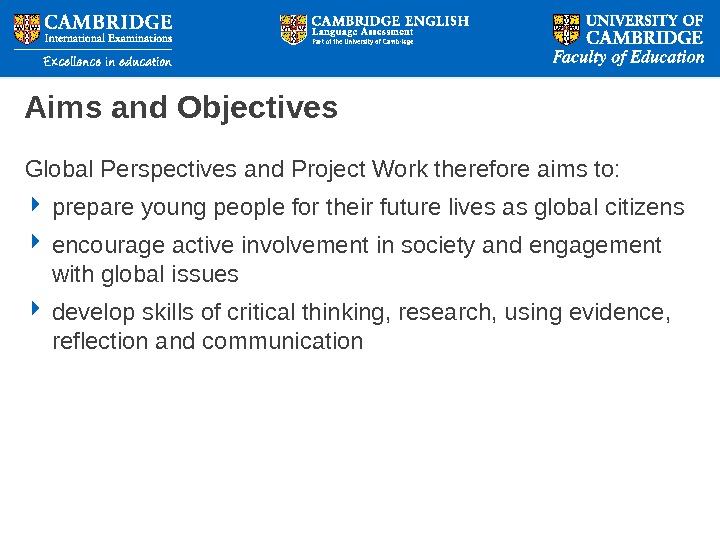
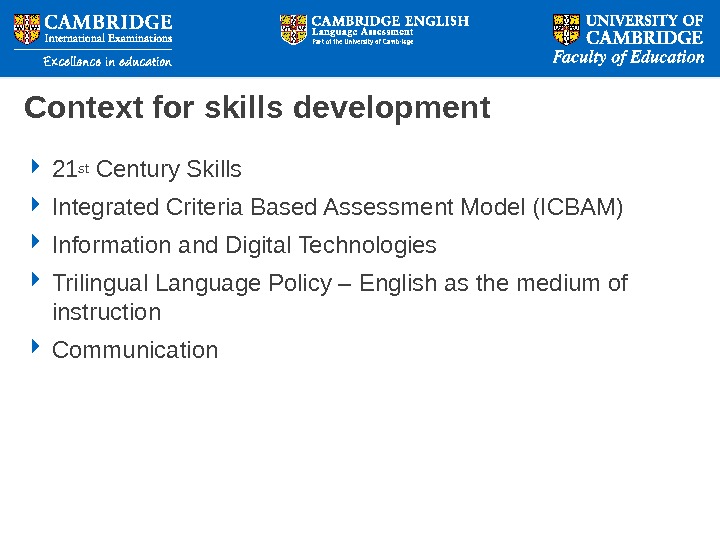
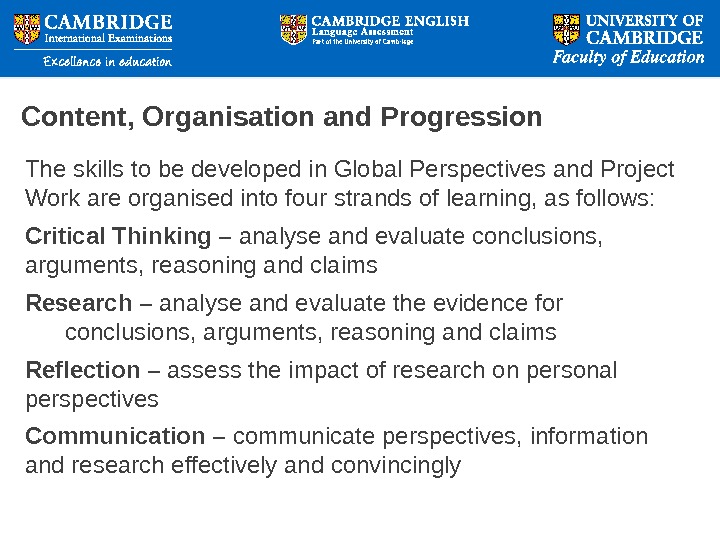


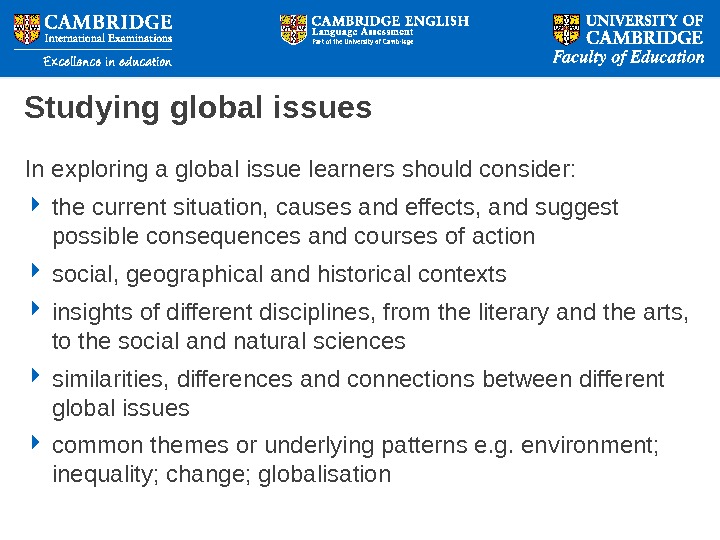
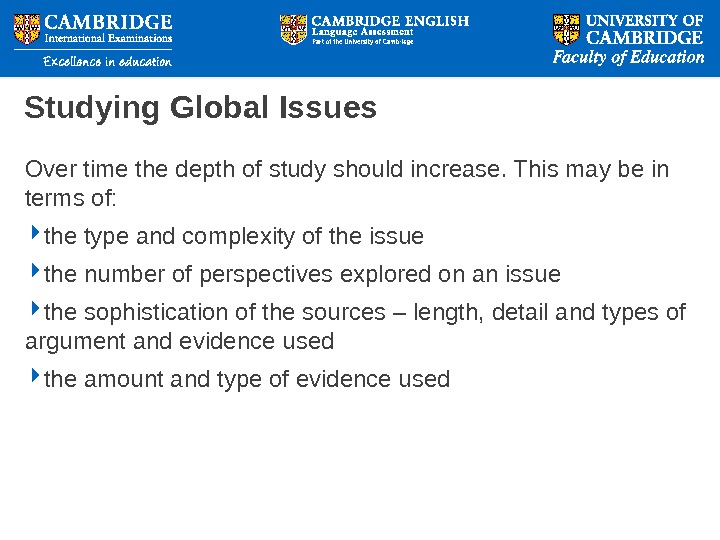
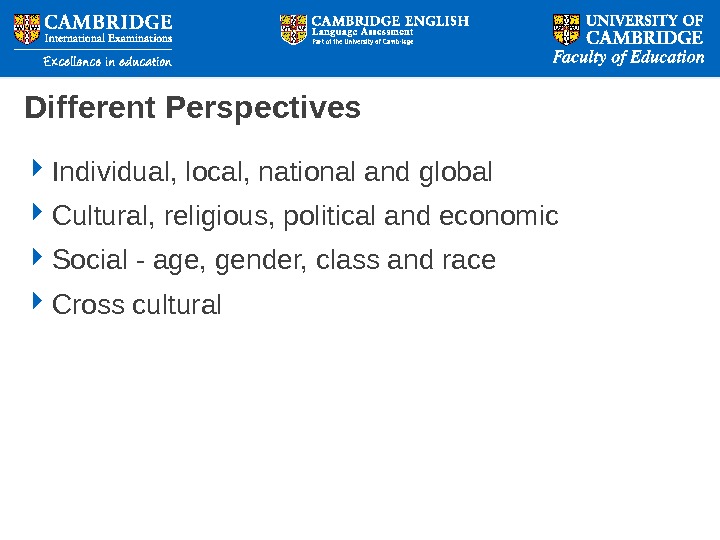
- Размер: 665.5 Кб
- Количество слайдов: 12
Описание презентации Global Perspectives and Project Work Global по слайдам
 Global Perspectives and Project Work
Global Perspectives and Project Work
 Global Perspectives is a groundbreaking new course that is cross-curricular, stretching across traditional subject boundaries. It taps into the way today’s students enjoy learning − including group work, seminars, projects, and working with other students around the world. The emphasis is on developing the ability to think critically about a range of global issues where there is always more than one point of view
Global Perspectives is a groundbreaking new course that is cross-curricular, stretching across traditional subject boundaries. It taps into the way today’s students enjoy learning − including group work, seminars, projects, and working with other students around the world. The emphasis is on developing the ability to think critically about a range of global issues where there is always more than one point of view
 Context Global Perspectives and Project Work is designed in response to: rapid scientific and technological change increasing social and economic development globalisation and the interdependence of nations the influence of worldwide media faster communications and cheaper transportation significant global issues that shape the way we live and the future of the planet
Context Global Perspectives and Project Work is designed in response to: rapid scientific and technological change increasing social and economic development globalisation and the interdependence of nations the influence of worldwide media faster communications and cheaper transportation significant global issues that shape the way we live and the future of the planet
 Young people will face many challenges and need to: handle growing amounts of new information respond sensitively to other cultures and ways of life critically assess competing perspectives and points of view develop their own perspectives respond positively to change and solve problems constructively work independently and collaboratively develop new skills in lifelong education
Young people will face many challenges and need to: handle growing amounts of new information respond sensitively to other cultures and ways of life critically assess competing perspectives and points of view develop their own perspectives respond positively to change and solve problems constructively work independently and collaboratively develop new skills in lifelong education
 Aims and Objectives Global Perspectives and Project Work therefore aims to: prepare young people for their future lives as global citizens encourage active involvement in society and engagement with global issues develop skills of critical thinking, research, using evidence, reflection and communication
Aims and Objectives Global Perspectives and Project Work therefore aims to: prepare young people for their future lives as global citizens encourage active involvement in society and engagement with global issues develop skills of critical thinking, research, using evidence, reflection and communication
 Context for skills development 21 st Century Skills Integrated Criteria Based Assessment Model (ICBAM) Information and Digital Technologies Trilingual Language Policy – English as the medium of instruction Communication
Context for skills development 21 st Century Skills Integrated Criteria Based Assessment Model (ICBAM) Information and Digital Technologies Trilingual Language Policy – English as the medium of instruction Communication
 Content, Organisation and Progression The skills to be developed in Global Perspectives and Project Work are organised into four strands of learning, as follows: Critical Thinking – analyse and evaluate conclusions, arguments, reasoning and claims Research – analyse and evaluate the evidence for conclusions, arguments, reasoning and claims Reflection – assess the impact of research on personal perspectives Communication – communicate perspectives, information and research effectively and convincingly
Content, Organisation and Progression The skills to be developed in Global Perspectives and Project Work are organised into four strands of learning, as follows: Critical Thinking – analyse and evaluate conclusions, arguments, reasoning and claims Research – analyse and evaluate the evidence for conclusions, arguments, reasoning and claims Reflection – assess the impact of research on personal perspectives Communication – communicate perspectives, information and research effectively and convincingly
 Global Issues Alternative energy Belief systems Biodiversity and ecosystem loss Climate change Conflict and peace Disease and health Education Employment Endangered cultures Gender Fuel and energy Genetic engineering Globalisation Humans and other species
Global Issues Alternative energy Belief systems Biodiversity and ecosystem loss Climate change Conflict and peace Disease and health Education Employment Endangered cultures Gender Fuel and energy Genetic engineering Globalisation Humans and other species
 Global Issues Impact of the Internet Industrial pollution Language and communication Law and criminality Medical ethics and priorities Migration Poverty and inequality Technology and the Trade and aid economic divide Transport and infrastructure Urbanisation Water, food and agriculture
Global Issues Impact of the Internet Industrial pollution Language and communication Law and criminality Medical ethics and priorities Migration Poverty and inequality Technology and the Trade and aid economic divide Transport and infrastructure Urbanisation Water, food and agriculture
 Studying global issues In exploring a global issue learners should consider: the current situation, causes and effects, and suggest possible consequences and courses of action social, geographical and historical contexts insights of different disciplines, from the literary and the arts, to the social and natural sciences similarities, differences and connections between different global issues common themes or underlying patterns e. g. environment; inequality; change; globalisation
Studying global issues In exploring a global issue learners should consider: the current situation, causes and effects, and suggest possible consequences and courses of action social, geographical and historical contexts insights of different disciplines, from the literary and the arts, to the social and natural sciences similarities, differences and connections between different global issues common themes or underlying patterns e. g. environment; inequality; change; globalisation
 Studying Global Issues Over time the depth of study should increase. This may be in terms of: the type and complexity of the issue the number of perspectives explored on an issue the sophistication of the sources – length, detail and types of argument and evidence used the amount and type of evidence used
Studying Global Issues Over time the depth of study should increase. This may be in terms of: the type and complexity of the issue the number of perspectives explored on an issue the sophistication of the sources – length, detail and types of argument and evidence used the amount and type of evidence used
 Different Perspectives Individual, local, national and global Cultural, religious, political and economic Social — age, gender, class and race Cross cultural
Different Perspectives Individual, local, national and global Cultural, religious, political and economic Social — age, gender, class and race Cross cultural

